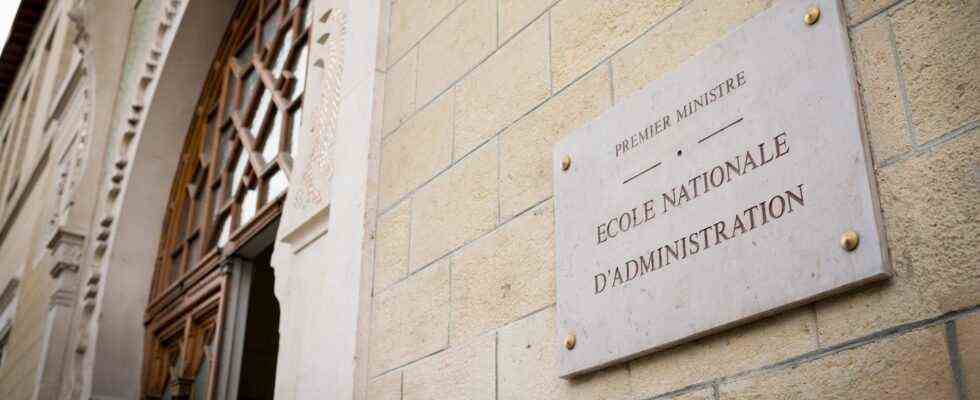The entrance to the National School of Administration (ENA), in Paris on February 12, 2020. – Clément Follain / 20 Minutes
- Considered as a breeding ground for elites, the ENA is often criticized.
- Emmanuel Macron announced on Thursday that it was going to disappear to give birth to a new training school for senior officials, the Public Service Institute which is more open.
It is a French symbol that falls. The ENA (National School of Administration) will finally be abolished and will be replaced by the Public Service Institute. Emmanuel Macron announced this Thursday in front of 600 executives of the senior administration gathered for the State Managerial Convention, organized by videoconference by Matignon. The Head of State had mentioned this project at the end of the great national debate post crisis of the “yellow vests” before procrastinating and suggesting in February that it would simply be reformed. But ultimately, the ENA, which has been training senior leaders for 40 years, will indeed disappear. 20 minutes explains what we know about the future establishment which will replace it in 2022.
Why remove the ENA?
The school is often accused of representing a group of people, of training senior officials cut off from the realities on the ground. The aim of the new establishment is to promote “the opening of the senior civil service to different audiences”, specifies the Elysee and “strengthen the attractiveness of the senior civil service”. While offering his students “clearer career prospects”. The public service institute will also be more “open to the world of research and the international”, continues the entourage of Emmanuel Macron.
How will the Public Service Institute operate?
The latter will be installed in Strasbourg and will open in 2022. It will accommodate students from 13 schools (ENA, INET, ENM, EHESP, EN3S, ENSP, ENAP, 4 application schools of polytechnique, EOGN, ENS) who will follow a course there. common. Students will then follow the specific curriculum specific to their school.
What will be the recruitment methods?
That the preparatory of the ENA be reassured: the competition on which it works will be maintained. As well as all those of the 13 schools mentioned above. In Nantes in February, Emmanuel Macron had also promised that 1,000 additional places would be created in the “Talent preparation”, classes preparing for the competitive examinations of the grandes écoles of the civil service and dedicated to young people from social origins or from disadvantaged geographical areas. In addition, the allowance paid to these young people will be doubled and will rise to 4,000 euros. They will take a specific competitive examination, the “Talents” route and places will be reserved for them in public service schools.
Will there always be a classification of students at the exit?
Yes. “It will be used to determine the first assignments, but not for the rest of the course,” says the Elysee. It will no longer be possible to directly integrate the “large bodies” (Council of State, Financial Inspectorate, Court of Auditors, etc.). The first assignments will therefore take place “in the field” in the decentralized administrations so that the diplomas occupy “operational missions” and know “the first personal experiences of the management”, indicates the Elysee. They can only be established in the “large corps” after “five or six years of practice in the field”, specifies the Elysee. An assignment system that will allow officials “not to be assigned to a sector or a trade permanently”.

